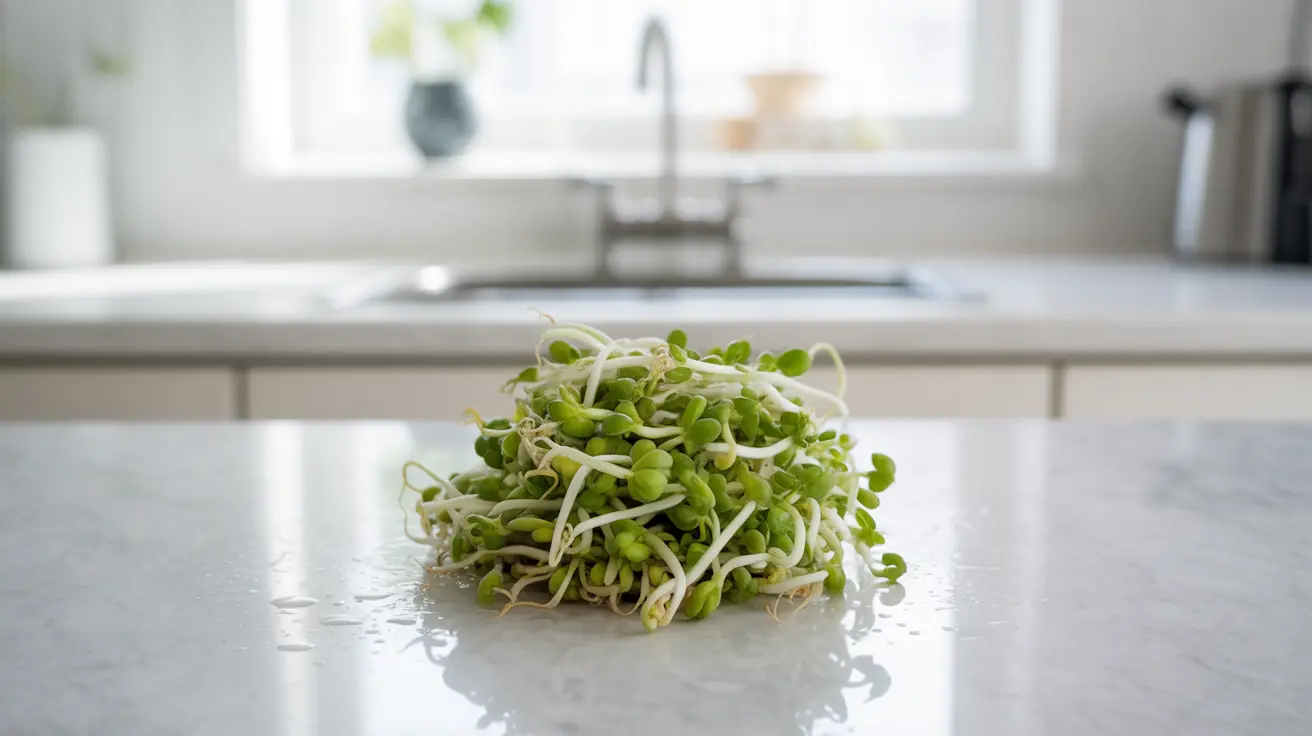Bean sprouts are one of nature's most impressive nutritional powerhouses, offering an incredible array of health benefits in a small, crispy package. These young seedlings, commonly derived from mung beans or soybeans, pack a concentrated punch of vitamins, minerals, and beneficial compounds that can significantly impact your overall health.
Whether you're looking to boost your immune system, manage weight, or improve heart health, understanding the nutritional profile and proper preparation of bean sprouts can help you maximize their benefits while ensuring safe consumption.
Nutritional Profile of Bean Sprouts
Bean sprouts are remarkably low in calories while being rich in essential nutrients. They contain significant amounts of vitamin C, folate, and vitamin K, making them an excellent addition to a balanced diet. These sprouts are also a good source of fiber and protein, with minimal fat content.
Key nutrients found in bean sprouts include:
- Vitamin C for immune support
- Folate for cell growth and DNA synthesis
- Vitamin K for bone health
- Iron for healthy blood cells
- Potassium for blood pressure regulation
- Fiber for digestive health
Heart Health Benefits
Bean sprouts contain compounds that can significantly benefit cardiovascular health. Their high potassium content helps regulate blood pressure, while their fiber content can help manage cholesterol levels. Regular consumption may contribute to reduced risk of heart disease through multiple mechanisms.
The antioxidants present in bean sprouts also help protect blood vessels from oxidative stress and inflammation, supporting overall heart health.
Blood Sugar Management
For individuals concerned about blood sugar levels, bean sprouts offer promising benefits. Their low glycemic index and high fiber content help slow down sugar absorption in the bloodstream, making them an excellent food choice for people with diabetes or those at risk of developing the condition.
The protein content in bean sprouts also helps stabilize blood sugar levels by providing sustained energy release throughout the day.
Anti-inflammatory and Cancer-Fighting Properties
Bean sprouts contain various bioactive compounds with potential anti-inflammatory and anti-cancer properties. These include antioxidants and flavonoids that help protect cells from damage and may reduce the risk of certain types of cancer.
Research suggests that the isoflavones found in bean sprouts may have particular benefits in reducing inflammation and supporting cellular health.
Safe Preparation and Consumption
While bean sprouts offer numerous health benefits, proper handling and preparation are crucial to avoid foodborne illness. Follow these essential safety guidelines:
- Purchase fresh sprouts from reputable sources
- Store them in the refrigerator at 40°F or below
- Wash thoroughly before use
- Cook until steaming hot to reduce risk of bacterial contamination
- Avoid raw sprouts if you're in a high-risk group
Frequently Asked Questions
What are the main nutritional benefits of eating bean sprouts?
Bean sprouts are rich in vitamins C, K, and folate, along with minerals like iron and potassium. They're low in calories but high in protein and fiber, making them an excellent choice for nutritious weight management.
How do bean sprouts help with heart health and cholesterol management?
Bean sprouts support heart health through their high potassium content, which helps regulate blood pressure, and their fiber content, which aids in managing cholesterol levels. Their antioxidants also protect blood vessels from damage.
Can bean sprouts help regulate blood sugar and support diabetes management?
Yes, bean sprouts can help regulate blood sugar due to their low glycemic index and high fiber content. Their protein content also helps maintain stable blood sugar levels throughout the day.
Are bean sprouts effective in reducing inflammation and preventing certain cancers?
Bean sprouts contain antioxidants and bioactive compounds that have demonstrated anti-inflammatory properties. Their isoflavones and other compounds may help reduce cancer risk, though more research is needed to fully understand these effects.
What is the safest way to prepare and eat bean sprouts to avoid foodborne illness?
The safest way to consume bean sprouts is to cook them thoroughly until steaming hot. Always wash them before use, store them properly in the refrigerator, and purchase from reliable sources. High-risk individuals should avoid raw sprouts entirely.




